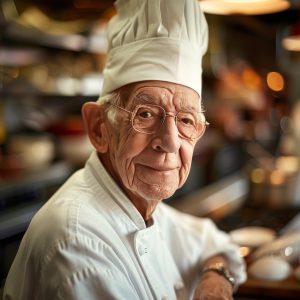What To Expect To Get From Culinary School?
Top names like Rachel Ray, Emeril Lagasse, and Anthony Bourdain seem to have it all: massive wealth, culinary empires, and an easy lifestyle. Who doesn’t want that, right?
Unfortunately, making it to the top of the culinary ladder is more complex than these professionals make it seem. In reality, working in a kitchen is hard and time-consuming, and although many people try to get there, the chances are meager than they ever will. While it’s essential to hold on to your dreams, it is important to ensure that these dreams are realistic.
Fame isn’t the only challenge to overcome, either. Other common misconceptions about the culinary world include pay, schedules, and the stress involved in working in the field.
The Money
Although we only see and hear how much money top celebrity chefs make, it’s important to remember that entry-level wages almost always fall on the low end of the spectrum. It’s not uncommon for a culinary school graduate – even from a top-name school – to find work as a $10/hour line cook.
This can seem like an almost insignificant amount of money when added to the possibility of thousands of dollars in student loan debt. And it is – but only temporarily.
In most cases, line cooks who are serious about their careers eventually make their way up the ranks to become sous chefs, managers, or even Executive Chefs. However, this transition can take years of hard work and dedication before it becomes a reality.
If you’re really serious about turning your culinary dreams into realities, you have to be prepared to start with less income than you planned on and to work harder than you ever thought possible.
The Schedule
It’s also important not to choose a culinary career because you dream of a 9 to 5, Monday through Friday lifestyle. Most people eat out in the evening, which means you can expect to work primarily in the “swing shift” hours from around three in the afternoon to midnight or later. For individuals with families or other commitments, this schedule can be brutal.
Add to that the pressures of working weekends, holidays, and other important days of the year, and you might find that working in the culinary field is anything but the breeze you thought it would be.
The Stress
Of course, the high-stress lifestyle of the kitchen must also be considered. Most chefs and cooks spend most of their time on their feet, often doing physically challenging work. Kitchens are known to operate at high speeds, and the potential for hazards is high. Knives, burners, open flames, flying pots of soup, and other dangerous things abound in the kitchen, and you must be prepared to meet the fast orders coming in from all directions.
Consider the phrase, “If you can’t take the heat, get out of the kitchen.” That is never more true than when you actually are in the kitchen! The culinary field can be one of the most stressful when added to long hours and low pay.
Culinary School as a “Fall-Back” Plan
If we haven’t scared you away from the culinary field yet, here’s a little more food for thought before you dive into a new career. Because the culinary field is always growing and offering more opportunities, many people see it as a “fall-back” career.
After all, no other field offers as many jobs or job security in the United States except the healthcare industry. What better way to safeguard yourself against unemployment, right?
Wrong. There are so many factors involved in choosing a culinary school that it should never be used as a way to “just get by.” In addition to the high costs associated with many types of culinary schools, choosing one can end up ruining any love you have for the field to begin with.
A school that isn’t matched to your goals or a program you don’t feel committed to can waste time, money, and energy.
Who Should Go to Culinary School?
We’ve said it before and I’ll say it again: culinary school and culinary careers are all about passion. Those who really love food and cooking often have the highest job satisfaction of any other career. The culinary world combines art, food, and discipline to create the perfect environment for a lifetime of happiness.
Anyone and everyone can succeed at culinary school and in a culinary career – provided they go in with their eyes wide open. Once you know the top seven mistakes and learn how to choose the right school for you, you will be better equipped to make a rational choice for you and your future. In fact, when done correctly, a culinary career can be the most satisfactory decision of your life.
Is A Culinary Career Right For Me?













One Response
Straight to the point, and i very much agree that cooking is a passion, if it´s not for you, you will hate it.